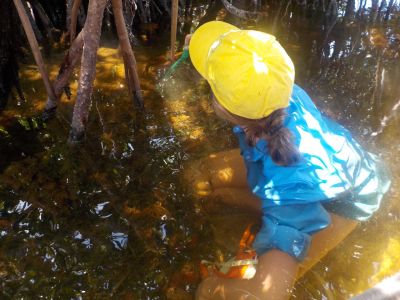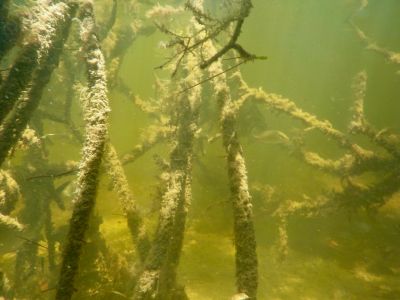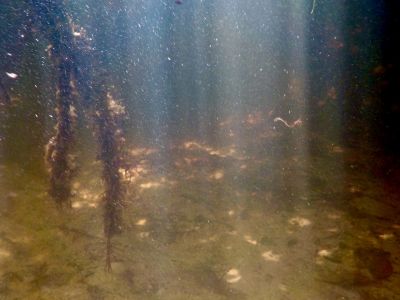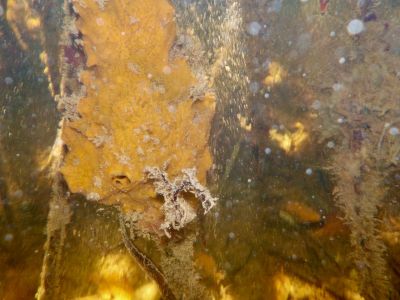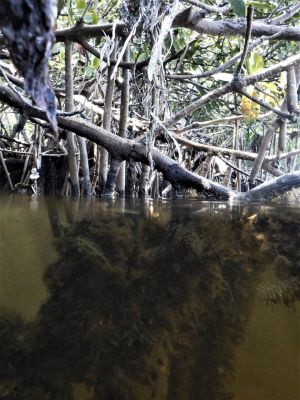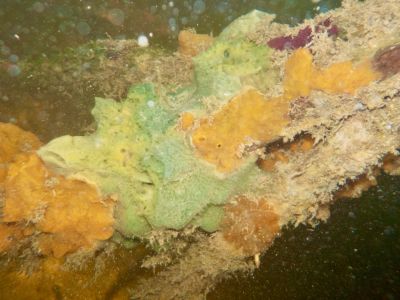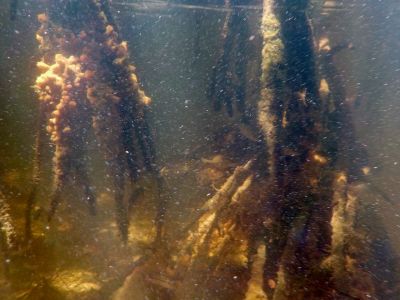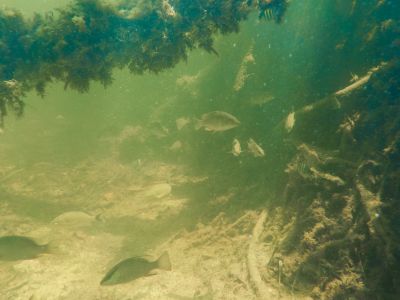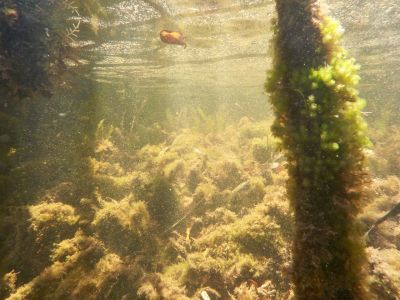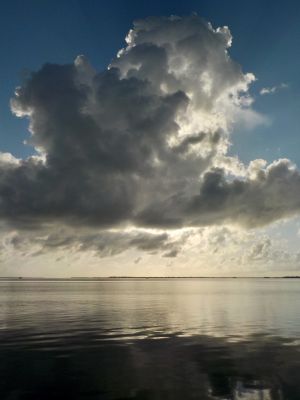Friday May 7, 2021
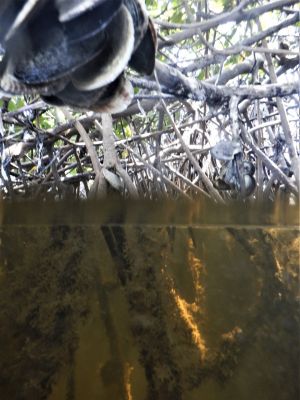
Today we started the day with a lecture on Mangroves and their ecology. We were introduced to three magnificent species that are native to Florida, these species include the Red Mangrove ( R. mangle), Black Mangrove ( A. germinans), and lastly the White Mangrove (L. racemose). We discussed the various attributes that allow Mangrove trees to grow in such salty and wet environments. These attributes include secreting excess salt from their leaves and using prop roots or pneumatophores (depending on the species) to help aerate their roots and allow for gas exchange when growing in very wet areas. We also learned a lot more about how Mangroves provide a nursery area for juvenile Reef fish before they become mature enough to venture out to the Reef, Professor Sensenig referred to this as “Fish Kindergartens.” This aspect shows how connected these systems are for some organisms that seem somewhat distant to us.
After lecture we headed to the field as we typically do, but as we were heading out on the boat the weather turned on us and we had to go back. We took this opportunity to finish up our remaining taxonomy lectures on the amazing phyla of animals that are Cnidarians (Jellies, Corals and Sea Anemones, and Hydrozoans) and the Echinodermata phyla (Sea Stars, Brittle Stars, Sea Cucumbers, Urchins, etc.). I really enjoy these lectures as there is always something new that I learn about the organisms I love, especially when it comes to their anatomy. After the two taxonomy lectures, we enjoyed lunch and watched the documentary titled “My Octopus Teacher”. This was a great film and highlighted many themes Professor Sensenig has talked to us about such as looking for the small hidden things while in the field, and the fact that things take time such as how it took the man in the movie time to gain the Octopus’ trust. The film also reminded all of us of the newly emerged Octopus paralarvae we were so lucky to see a few days before.
After the film it was nice enough to go out on the water again. Today we were helping our colleague Leah Otto with her Mangrove research project. It was so amazing to feel so immersed in the Mangroves and looking under and seeing all the juvenile reef fish swimming through the prop roots of the Red Mangrove trees. It was so amazing to see what was going on underneath the Mangroves we have passed so many times while on the boat on our way to the field this week, it felt like a whole new world while snorkeling under there! So far I have been feeling so lucky to be here and to be able to finally get to fully discover and explore the environments I have always read about and dreamed of visiting as a child is something I am so very thankful for.
– Nick Davis ’21 (Environmental & Marine Science)





